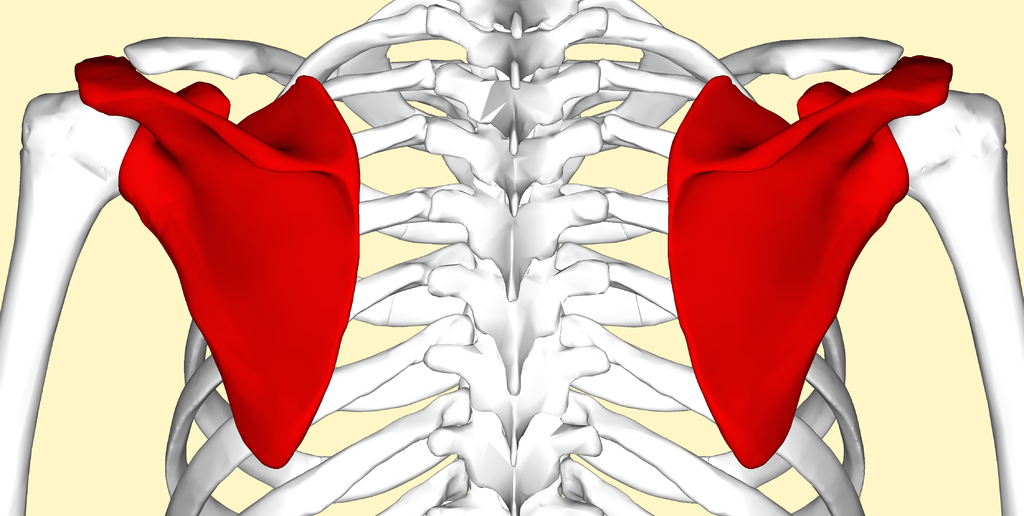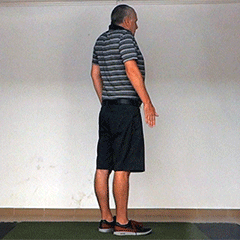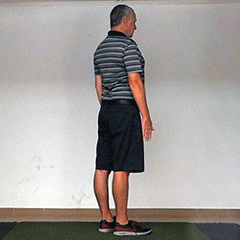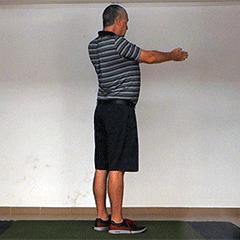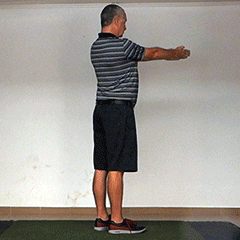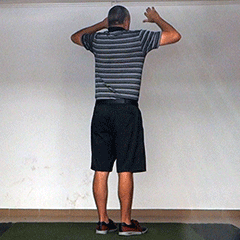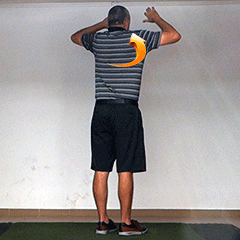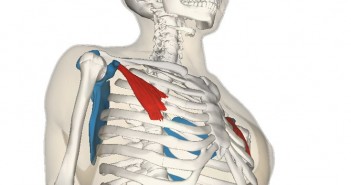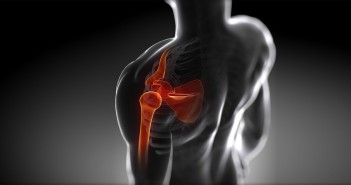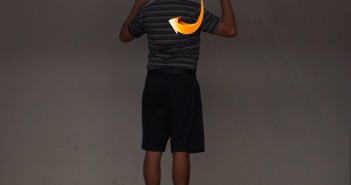The shoulder blade (or scapula), is the bone that connects the humerus (upper arm bone) with the clavicle (collar bone).
Like their connected bones the scapulae are paired, with the scapula on the left side of the body being roughly a mirror image of the right scapula.
The scapula forms the posterior (back) located part of the shoulder girdle. It is a flat bone, roughly triangular in shape, placed on a posterolateral aspect of the thoracic cage.
Depression
Scapular depression moves the shoulder blade (scapula) down, away from your ear – see Figure 1.
Protraction
Scapular protraction (or scapular abduction) moves the shoulder blade (scapula) forwards, away from the spine – see Figure 3.
Retraction
Scapular retraction (or scapular adduction) moves the shoulder blade (scapula) back, towards the spine – see Figure 4.
Downward Rotation
Scapular downward rotation moves the lower angle of the shoulder blade (scapula) towards the spine and downwards – see Figure 5.
Upward Rotation
Scapular upward rotation moves the lower angle of the shoulder blade (scapula) away from the spine and upwards – see Figure 6.
You May Also Like…
Golf Anatomy and Kinesiology, a collection of articles describing the roles of the muscles involved in the golf swing.
The Role of the Lats in the Golf Swing.
The Role of the Levator Scapulae in the Golf Swing.
The Role of the Pecs in the Golf Swing.
The Role of the Teres Minor in the Golf Swing.
Why is Having the Shoulders “Connected” So Important in the Golf Swing?
Introduction to the Swing like a Champion System.
Overview of a Great Golf Swing which summarises the correct movements in a great golf swing.

